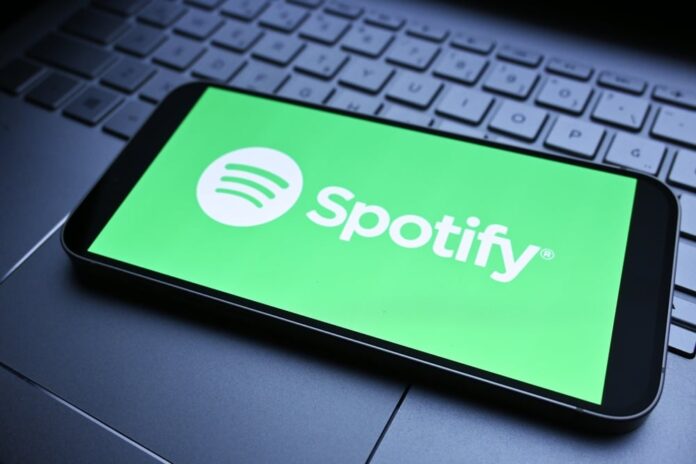A Spotify subscriber has sued Spotify, alleging the streaming giant deceives users by letting labels boost song visibility through reduced royalty payments while marketing playlists as “personalized” recommendations.
The lawsuit was lodged by Genevieve Capolongo on Tuesday (November 4) in Manhattan federal court, claiming Spotify’s Discovery Mode feature amounts to “modern payola,” the practice of paying for airplay that regulators have clamped down on since the vaudeville era.
The lawsuit, which you can read here, seeks class-action status for 100 members, seeking more than $5 million exclusive of costs and interest.
The complaint targets Discovery Mode, which Spotify launched in 2020 to let artists and labels flag priority tracks for algorithmic playlists.
Capolongo’s complaint read: “Spotify’s ‘Discovery Mode’ and purportedly organic curated playlists represent the latest form of payola in the industry’s long history of deceptive pay-for-play.”
“Spotify’s ‘Discovery Mode’ and purportedly organic curated playlists represent the latest form of payola in the industry’s long history of deceptive pay-for-play.”
Genevieve Capolongo’s Complaint
It adds: “Yet, Spotify’s version of payola stands out still. Unlike the DJs and promoters of old, Spotify charges listeners for the privilege of being deceived—$11.99 per month for an individual plan, to be exact.”
Capolongo argues that Spotify “exploits” users’ trust “by marketing itself as a platform that offers organic music recommendations—whether through its algorithmic or curated playlists—only to secretly sell those recommendations to the highest bidder.”
The lawsuit claims Spotify’s marketing promises personalized playlists “made just for you” while burying disclosures that “commercial considerations may influence [its] recommendations.”
Capolongo claims she subscribed in September 2023 “and routinely listened to music through Spotify’s platform, including its curated playlists such as Release Radar, Discover Weekly, her AI DJ, and other editorial and algorithmic playlists that Spotify advertised as neutral and personalized” but kept hearing mainstream major-label tracks despite preferring independent artists.
“Unlike the DJs and promoters of old, Spotify charges listeners for the privilege of being deceived—$11.99 per month for an individual plan, to be exact.”
Genevieve Capolongo’s Complaint
Spotify rejected the allegations, telling AllHipHop: “The allegations in this complaint are nonsense. Not only do they misrepresent what Discovery Mode is and how it works, but they are riddled with misunderstandings and inaccuracies.”
The company explained that Discovery Mode affects only Radio, Autoplay and certain Mixes, not flagship playlists like Discover Weekly or the AI DJ that the lawsuit references.
Spotify added: “The complaint even gets basic facts wrong: Discovery Mode isn’t used in all algorithmic playlists, or even Discover Weekly or DJ, as it claims.
“It’s also wrong to suggest Discovery Mode only supports major label artists. In fact, it’s been widely embraced by the independent music community, many of whom have praised the program publicly.”
Separately, last Sunday (November 2), Eric Dwayne Collins, known professionally as rapper RBX, filed a class-action lawsuit against Spotify, alleging the streaming giant has failed to prevent “mass-scale fraudulent streaming” that has caused “massive financial harm” to legitimate artists.
The complaint, which you can read here, was filed in California’s Central District Court. It centers on automated bots that artificially inflate stream counts for select artists while diminishing payouts for others.
RBX’s lawsuit specifically points to Drake, whom Spotify lists as “the most streamed artist of all time.” In September, Drake became the first artist to exceed 120 billion streams on Spotify, beating Taylor Swift and Bad Bunny.
According to Collins’ lawsuit, about 37 billion streams attributed to Drake between January 2022 and September 2025 “were inauthentic and appeared to be the work of a sprawling network of bot accounts.”
In a statement issued to the media, Spotify said: “We cannot comment on pending litigation. However, Spotify in no way benefits from the industry-wide challenge of artificial streaming.
“We heavily invest in always-improving, best-in-class systems to combat it and safeguard artist payouts with strong protections like removing fake streams, withholding royalties, and charging penalties.
“Our systems are working: In a case from last year, one bad actor was indicted for stealing $10,000,000 from streaming services, only $60,000 of which came from Spotify, proving how effective we are at limiting the impact of artificial streaming on our platform. For more information about artificial streaming, how artists can avoid it, and what Spotify is doing to tackle the issue, please visit.”
Music Business Worldwide


